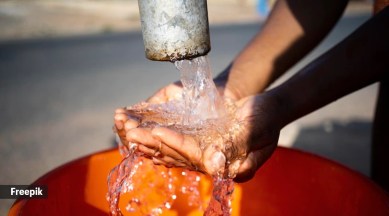“Waterborne diseases are illnesses caused by microorganisms or parasites present in contaminated water sources. These diseases can be caused by various pathogens such as bacteria, viruses and protozoa. Some common examples of waterborne diseases include cholera, typhoid fever, hepatitis A, giardiasis and dysentery,” Dr J Harikishan, Senior General Physician, Kamineni Hospitals, Hyderabad told indianexpress.com.

As the monsoon season approaches, it brings relief from the scorching heat and rejuvenates the environment. However, it also brings an increased risk of waterborne diseases, which are caused by the ingestion of contaminated water, leading to various health issues. In addition, 80 per cent of diseases are thought to be water-borne globally, according to the World Health Organization.
“Waterborne diseases are illnesses caused by microorganisms or parasites present in contaminated water sources. These diseases can be caused by various pathogens such as bacteria, viruses, and protozoa. Some common examples of waterborne diseases include cholera, typhoid fever, hepatitis A, giardiasis and dysentery,” Dr J Harikishan, Senior General Physician, Kamineni Hospitals, Hyderabad told indianexpress.com.
Are we prone to waterborne diseases in monsoon?
You have exhausted your
monthly limit of free stories.
To continue reading,
simply register or sign in
Subscribe to read on
Select your plan
All-Access
Access to premium stories
Digital Only
Access to premium stories
This premium article is free for now.
Register to continue reading this story.
This content is exclusive for our subscribers.
Subscribe to get unlimited access to The Indian Express exclusive and premium stories.
This content is exclusive for our subscribers.
Subscribe now to get unlimited access to The Indian Express exclusive and premium stories.
Waterborne diseases tend to be more common during the monsoon season. Explaining the same, Dr Harikishan said, “The heavy rainfall can lead to water stagnation and contamination of water sources. Overflowing sewage systems, compromised water supply and inadequate sanitation facilities contribute to the increased risk of waterborne diseases. Moreover, the humidity and dampness during monsoons create favorable conditions for the growth and survival of waterborne pathogens.”
How can we prevent these diseases in monsoon?
By exercising care and caution, you can safeguard yourself and your family from the consequences of these diseases. To maintain a healthy and safe environment, follow these guidelines, according to Dr Sabine Kapasi, Public health leader at UNDAC & Geneva:
*Avoid tap water: Refrain from drinking tap water directly as it may not be adequately treated. Use purified or boiled water for brushing teeth and rinsing utensils as well.
*Wash hands frequently: Maintain proper hand hygiene by washing your hands with soap and clean water for at least 20 seconds, especially before eating, after using the toilet, and after coming in contact with potentially contaminated surfaces.
*Wash fruits and vegetables: Thoroughly wash fruits and vegetables with clean water before consuming them. Consider using a vegetable wash or soak them in a diluted vinegar solution for added safety.
*Maintain clean surroundings: Ensure that your surroundings are clean and free from stagnant water. Remove any waterlogged areas or containers that can become breeding grounds for mosquitoes and other disease-carrying insects.
*Avoid walking in flooded areas: Steer clear of flooded streets or areas with stagnant water. Such water may be contaminated and pose health risks.
*Use mosquito repellents: Protect yourself from mosquito bites by applying mosquito repellents on exposed skin. Use mosquito nets while sleeping, especially if you live in an area prone to mosquito-borne diseases.
*Be aware of symptoms: Educate yourself about the common symptoms of waterborne diseases. If you experience persistent diarrhea, vomiting, abdominal pain, fever or other unusual symptoms, seek medical attention promptly.
*Be cautious with water activities: If engaging in recreational water activities, such as swimming or boating, choose clean and well-maintained facilities. Avoid swimming in natural water bodies that may be contaminated due to heavy rainfall.
*Vaccinations: Consult with healthcare professionals to receive vaccinations or boosters for diseases like cholera, typhoid and hepatitis A, especially if one is residing in or traveling to high-risk areas.
*Support community efforts: Encourage and participate in community initiatives aimed at improving sanitation and ensuring safe water practices during the monsoon season.
Concluding, Dr Kapisi said, “By following preventive measures such as accessing safe drinking water, maintaining proper sanitation, practicing good personal hygiene and taking necessary vaccinations, the risk of waterborne diseases can be greatly reduced. These simple steps can go a long way in safeguarding your health and the health of your community, ensuring a safer and healthier monsoon season for all.”
???? For more lifestyle news, follow us on Instagram | Twitter | Facebook and don’t miss out on the latest updates!
© IE Online Media Services Pvt Ltd
First published on: 19-06-2023 at 21:40 IST










